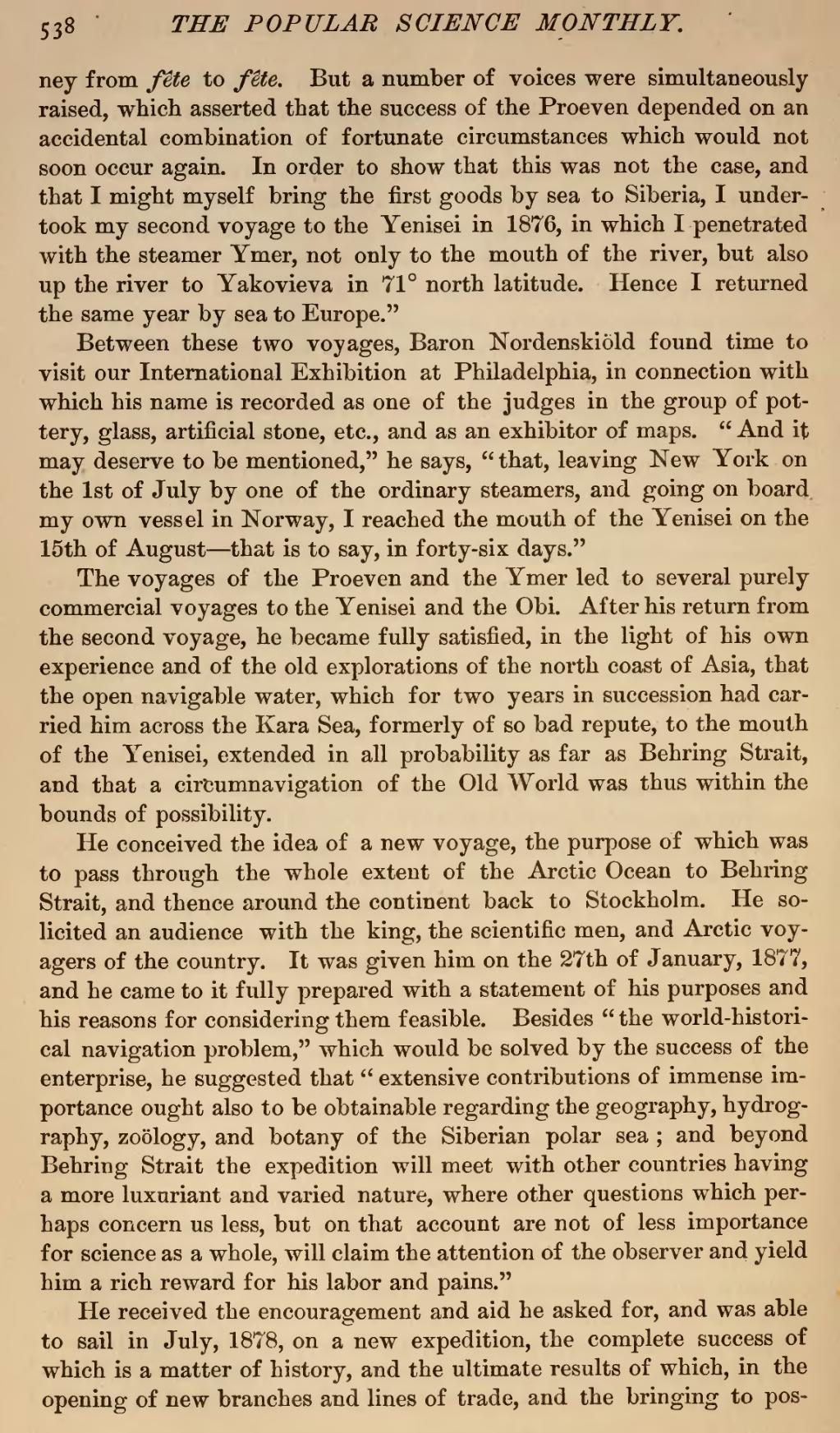ney from fête to fête. But a number of voices were simultaneously raised, which asserted that the success of the Proeven depended on an accidental combination of fortunate circumstances which would not soon occur again. In order to show that this was not the case, and that I might myself bring the first goods by sea to Siberia, I undertook my second voyage to the Yenisei in 1876, in which I penetrated with the steamer Ymer, not only to the mouth of the river, but also up the river to Yakovieva in 71° north latitude. Hence I returned the same year by sea to Europe."
Between these two voyages, Baron Nordenskiöld found time to visit our International Exhibition at Philadelphia, in connection with which his name is recorded as one of the judges in the group of pottery, glass, artificial stone, etc., and as an exhibitor of maps. "And it may deserve to be mentioned," he says, "that, leaving New York on the 1st of July by one of the ordinary steamers, and going on board my own vessel in Norway, I reached the mouth of the Yenisei on the 15th of August—that is to say, in forty-six days."
The voyages of the Proeven and the Ymer led to several purely commercial voyages to the Yenisei and the Obi. After his return from the second voyage, he became fully satisfied, in the light of his own experience and of the old explorations of the north coast of Asia, that the open navigable water, which for two years in succession had carried him across the Kara Sea, formerly of so bad repute, to the mouth of the Yenisei, extended in all probability as far as Behring Strait, and that a circumnavigation of the Old World was thus within the bounds of possibility.
He conceived the idea of a new voyage, the purpose of which was to pass through the whole extent of the Arctic Ocean to Behring Strait, and thence around the continent back to Stockholm. He solicited an audience with the king, the scientific men, and Arctic voyagers of the country. It was given him on the 27th of January, 1877, and he came to it fully prepared with a statement of his purposes and his reasons for considering them feasible. Besides "the world-historical navigation problem," which would be solved by the success of the enterprise, he suggested that "extensive contributions of immense importance ought also to be obtainable regarding the geography, hydrography, zoology, and botany of the Siberian polar sea; and beyond Behring Strait the expedition will meet with other countries having a more luxuriant and varied nature, where other questions which perhaps concern us less, but on that account are not of less importance for science as a whole, will claim the attention of the observer and yield him a rich reward for his labor and pains."
He received the encouragement and aid he asked for, and was able to sail in July, 1878, on a new expedition, the complete success of which is a matter of history, and the ultimate results of which, in the opening of new branches and lines of trade, and the bringing to pos-
